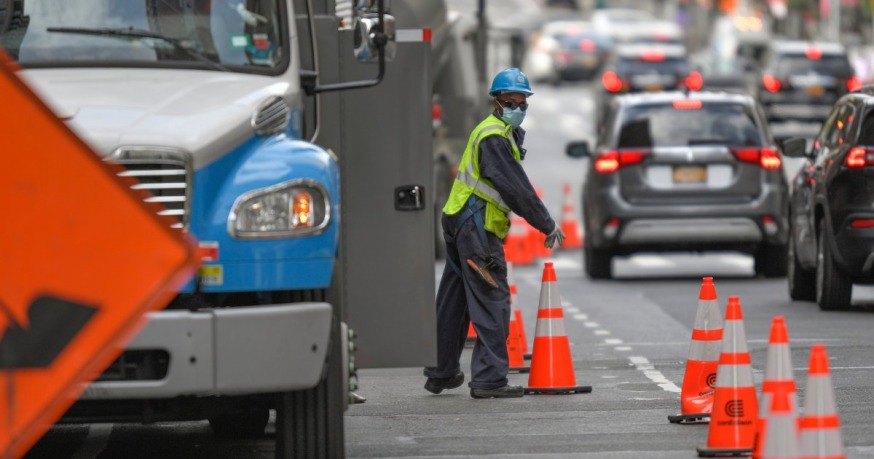
A Con Edison crew worker conducting infrastructure repairs (Twitter)
July 8, 2022 By Christian Murray
Dozens of elected officials—including many from Queens—are calling on the New York State Public Service Commission to block Con Edison’s proposal to hike electricity and gas bills next year.
Forty-nine officials from New York City and Westchester County are asking the PSC to deny Con Ed’s proposed rate hike that would raise the average customer’s overall electric bill by 11.2 percent and gas bill by 18.2 percent. The increases would take effect in 2023 and apply to residents of New York City and Westchester.
Con Ed, a publicly traded company, is calling for the increase in order to fund a $1.2 billion upgrade to its electric delivery system and a $500 million upgrade to its gas system. It is also planning to invest additional funds in renewable energy as it looks to reduce its use of fossil fuels.
The elected officials sent a letter to the PSC and Gov. Kathy Hochul on July 6 urging them to deny what they described as “Con Ed’s egregious rate hike.”
They say that 385,000 of Con Ed’s New York City and Westchester customers are already behind on their bills due to the economic fallout of the pandemic, runaway inflation and surging fuel prices. They argue that the hike will only exacerbate people’s hardship.
The officials say that the proposal would result in an extra $20.90 per month for electricity and $37.88 more per month for gas for the average customer.
“For my constituents facing inflation and an uncertain economy, these increases on an essential service, where they are at the mercy of this monopoly, whose profits have been tremendous while performance has been lacking, are simply unacceptable, unaffordable and quite frankly infuriating,” said State Sen. Shelly Mayer, who represents a district in Westchester.
The proposal primarily deals with Con Ed hiking its delivery charges, one of the three main components—along with the supply charge and taxes—included in electric and gas bills.
Delivery charges are levied by Con Ed to maintain the system. The system transports the energy, through the use of wires, substations, towers, transistors and other related infrastructure.
The state, through the Public Service Commission, regulates the delivery rates, which Con Ed is looking to increase. The company aims to raise these rates by 17.6 percent for electricity delivery and 28.1 percent for gas delivery.
The second component is the supply charge, which changes based on the cost of fuel needed to run the generators. Con Ed is not permitted to make a profit on the supply cost.
The third component is property taxes, which Con Ed says it is required to pay $2.5 billion in 2023. Property taxes, according to the company, will account for approximately $180 million of the proposed increase in electric costs and $75 million of the proposed increase in gas costs.
Councilmember Tiffany Cabán, who signed the letter, said that the proposed price hikes are unreasonable and come at a time when New Yorkers are facing higher food and fuel pump costs. She also said that tenants are also dealing with rent increases.
“The PSC must serve the public, not Con Ed’s bottom line. Con Ed’s rate hike request is unaffordable and must be denied, simple and plain.”
Cabán is among the many Queens officials to sign the letter. Others include State Senators Michael Gianaris and Jessica Ramos; Assemblymembers Zohran Mamdani, Nily Rozic, Andrew Hevesi, Brian Barnwell, Khaleel Anderson and Jessica González-Rojas; as well as Councilmembers Lynn Schulman, Shekar Krishnan, Julie Won and Robert Holden.
“The constituents I serve in Queens, like many New Yorkers, cannot afford already exorbitant utility costs,” González-Rojas said. “Cost of living across the city and state is rapidly outpacing wage growth and so many New Yorkers are facing economic hardship.”
One Comment

How much electricity is used in Times Square? I was there once at 11:00 p.m. and it looked like it was 11:00 a.m. I’m glad it was well lit, but keeping every light on has got to cost millions of dollars. Are we paying for it in our bills?